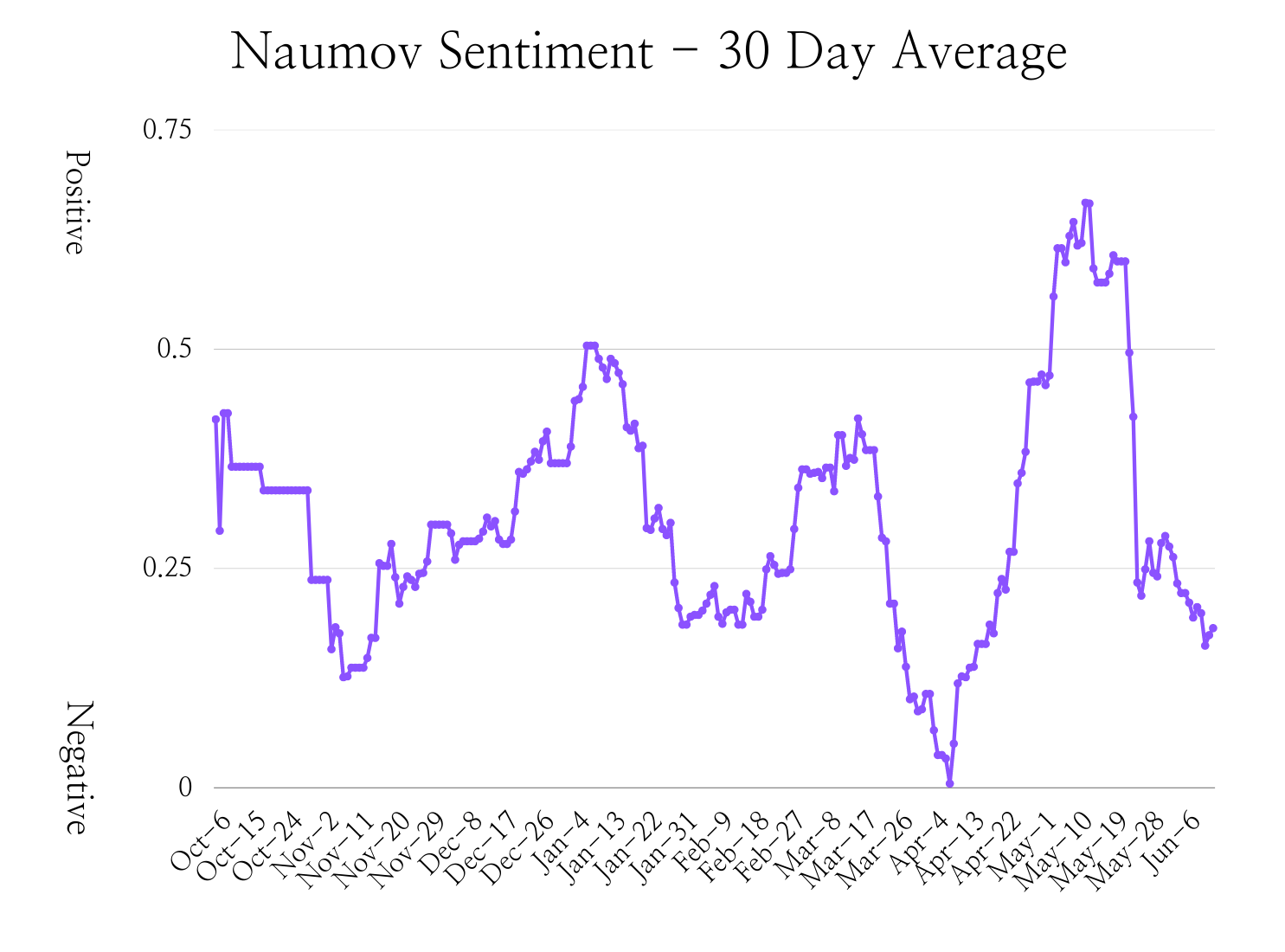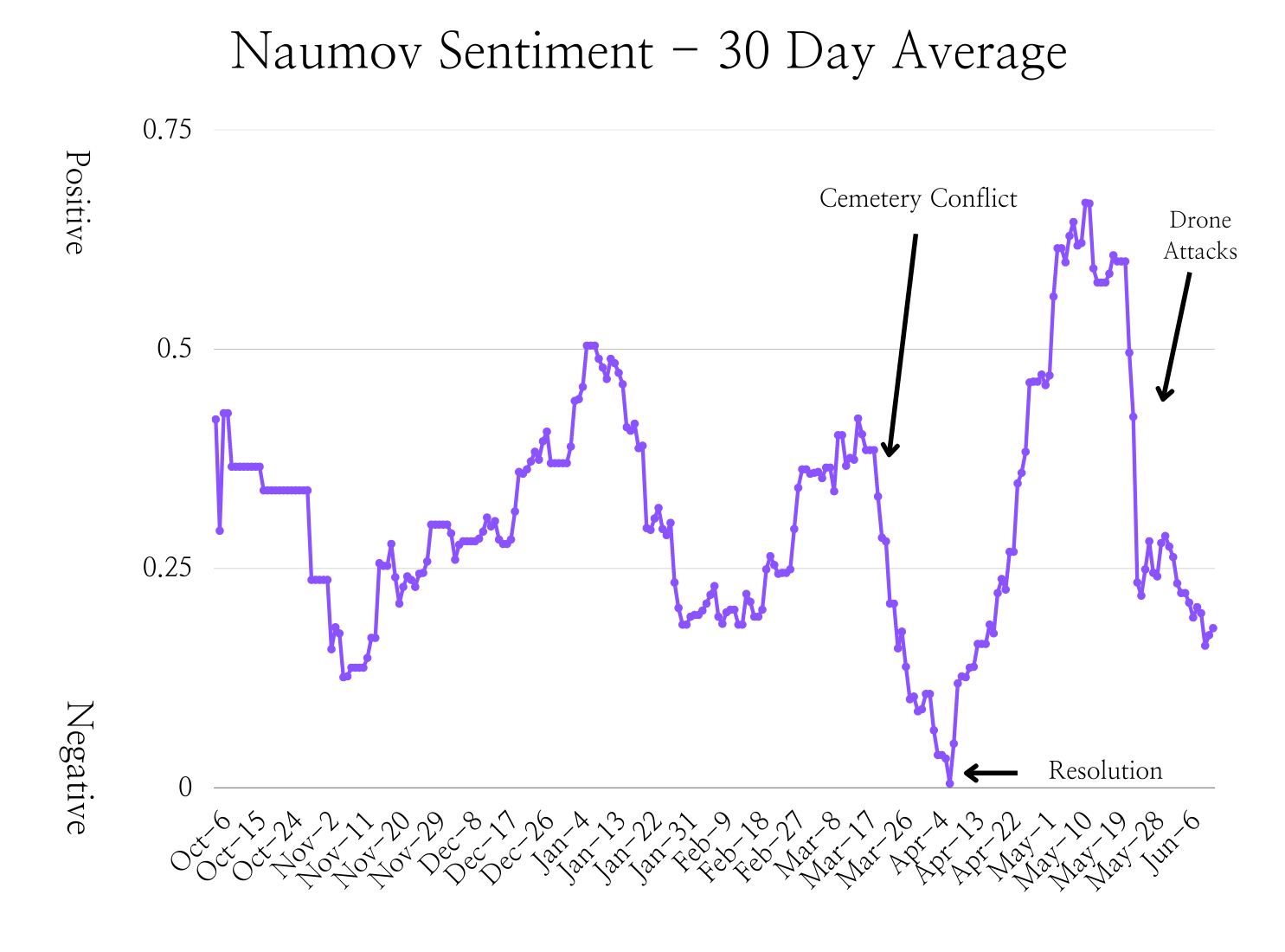How Trouble Found the Mayor of Krasnodar (and What He Did About It)

The importance of local knowledge for proper sentiment analysis
Much analysis of propaganda and other information campaigns relies on sentiment analysis. Analysts gather up huge amounts of online information and then, through an algorithm, measure the positive and negative valences of all that linguistic data. The data then reveals how large numbers of people feel about certain ideas, issues, or political figures.
That’s the theory, anyway. In order to be meaningful, sentiment analysis faces obvious obstacles. Even the best algorithms have trouble catching jokes, irony, sarcasm, lies, exaggerations, idioms, misspellings, and ambiguities of every kind[1].
At FilterLabs.ai, we have uncovered another, deeper challenge. Simply put, negative sentiment does not always mean displeasure. To make sense of sentiment in big data sets, one actually needs to know the minutiae of local social conditions.
Sounds too paradoxical? Consider the recent fortunes of Evgeny Naumov, the mayor of Krasnodar.
Before becoming mayor of Krasnodar (pop. ~1 million), Naumov was a regional bureaucrat. He was responsible for construction, road-building, and state and municipal services in the larger region Krasnodar Krai, a strategically crucial region in Russia that borders the Black Sea and the Sea of Azov. The region has historically been willing to defy federal authority. A local proverb, loosely translated, has it that the people of Krasnodar are “far from Moscow, farther from God–trouble won’t find us.”
True for most, maybe, but not for Naumov. The city council appointed him mayor in November, 2022, and since the appointment, sentiment scores of a sample of texts surrounding the mention of Naumov’s name have cycled up and down in a way that suggests concerted efforts to promote and/or degenerate him.

Why is sentiment around the mayor moving up and down like this? At first it looks like a storm of negativity is surrounding his name in March: there is a clear textual conjunction of negative sentiment and the mayor’s name. However, the underlying data sample comprises primarily state affiliated media written in support of the mayor. The articles described the mayor conducting his duties, greeting local students or agricultural workers, etc. Negatively valenced words like trouble, accident, discarded, and worsened referred to the magnitude of the problems the mayor was addressing–which of course made him look heroic.
But there had to be more to the story. Why was there a sudden propaganda blitz in favor of Naumov?
The answer is that there actually was a negative media campaign being waged against the mayor, at the same time.
In Krasnodar support runs high for paramilitary organizations like the Wagner Group, which is currently fighting on the Ukrainian front. Until last Spring, local politicians allowed Wagner founder Yevgeny Prigozhin to build a special cemetery for battalion members killed in action. On social media he posted videos of himself touring the site.
In March 2023 local officials started asking Prigozhin to bury the war dead elsewhere. Prigozhin once again took to social media. In video after video, released throughout the month, he excoriated a long list of enemies, which included Evgeny Naumov.
Let’s look at the sentiment chart again:

We can see that the mayor’s own campaign begins at exactly the same time as the mercenaries. Countering the possible effects of Prigozhin's social media videos, Naumov and his allies pumped out their own stories along more traditional media sources, all of which emphasized the mayor’s various efforts to improve the city. However, by mentioning the problems he is fixing, they drove the sentiment score down. Without mentioning it, the mayor’s own communications are inadvertently tipping their hand to the fact that the cemetery conflict is going on in the background.
At the end of March, Naumov and the Krasnodar regional governor allowed the Wagner group to keep using its cemetery. Prigozhin stopped mentioning them in his videos. When the campaign against the mayor ends, the mayoral communications shift in tone into an entirely positive direction, which accounts for the rise in sentiment surrounding the mayor through April.
What can we learn from mayor Naumov’s troubles?
Sentiment analysis and artificial intelligence remain indispensable tools for analyzing huge amounts of online data. We have only begun to tap their promise. At the same time, we must also remember that negativity and positivity do not have self-evident meanings. Evgeny Naumov got himself out of trouble with the Wagner group partly by emphasizing all of the other trouble in the region–and at least looking like he was doing something about it.
No matter how powerful algorithms become, it is still crucial to delve into the data artifacts themselves, look closely at local social and political conditions, and generally have a deeper (dare we say humanistic?) knowledge of the situation.




